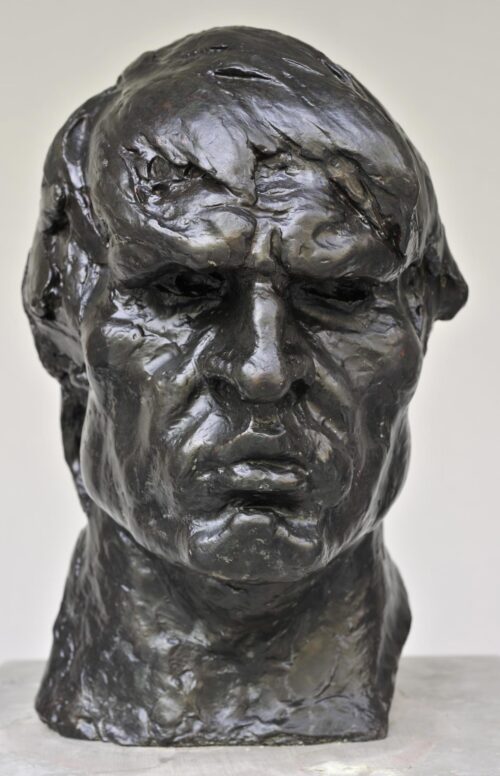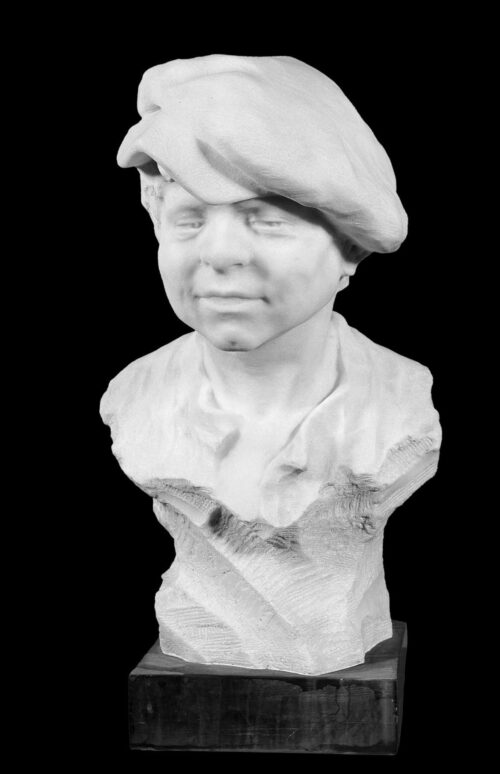
Doukas Loukas (1890 - 1925)
Cain, 1922
His apprenticeship began first in Dimitrios Filippotis’s and then Thomas Thomopoulos’s studios. In 1903, he enrolled in the Athens School of Fine Arts and in 1909 he began receiving a monthly subsidy from the Averoff Estate. In 1911-1912, he won the Chryssovergeio Award and in 1914 received a scholarship for international studies, of which he only benefited after 1919 due to the outbreak of World War I. In 1919, he came to Paris and enrolled in the Ecole des Beaux-Arts, studying with Jean Boucher. Returning to Athens in 1923, he established his own studio and in 1925 was appointed Associate Professor of Plastic at the National Technical University of Athens.
He participated in group exhibitions in Greece and other countries, including exhibitions of the Greek Artists Association and the Greek-French exhibition in Athens (1918); a posthumous retrospective show of his work was organised at the Parnassos Hall in 1926. His work was also shown in the 1948 Panhellenic Exhibition in Athens.
Forged mainly during his Paris years, Loukas Doukas’s creative identity clearly suggests influence from Rodin’s sculpture, oscillating between realism and expressionism. His works tell of his strife to capture reality through a selection of realistic subjects or to capitalise on expressive passion through expressionistic distortion.

Cain, 1922

Street Urchin, 1917

We use cookies to make our site work properly, to personalize content and ads, to provide social media features and to analyze our traffic. We also share information about how you use our site with our social media, advertising and analytics partners. Read the Cookies Policy.
These cookies are necessary for the website to function and cannot be switched off in our systems. They are usually only set in response to actions made by you which amount to a request for services, such as setting your privacy preferences, logging in or filling in forms. You can set your browser to block or alert you about these cookies, but some parts of the site will not then work. These cookies do not store any personally identifiable information.
If you disable this cookie, we will not be able to save your preferences. This means that every time you visit this website you will need to enable or disable cookies again.
These cookies tell us about how you use the site and they help us to make it better. For example these cookies count the number of visitors to our website and see how visitors move around when they are using it. This helps us to improve the way our site works, for example, by ensuring that users find what they are looking for easily. Our website uses Google Analytics for statistics reporting.
Please enable Strictly Necessary Cookies first so that we can save your preferences!